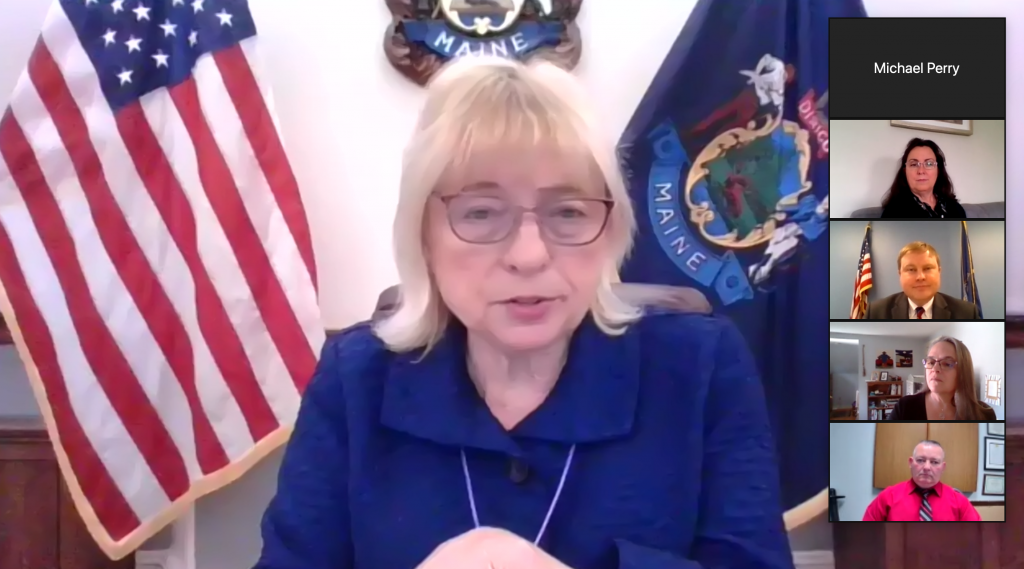Homicide Review Panel Calls for Community Action at Release of 13th Biennial Report
On April 28th, MCEDV joined with members of Maine’s Domestic Abuse Homicide Review Panel at a virtual press event to present the Panel’s 13th Biennial Report. In addition to reviewing cases from the last two years, the Report includes a 20-year lookback at domestic abuse homicide in Maine. It identified areas of progress and work to be done.
The press event began with Governor Janet Mills sharing her own story of a boyfriend holding a gun to her head, saying, “I will never forget that night. I will always know that I was one of the lucky ones.”
Governor Mills identified efforts to restore Maine’s public health nursing program, new laws addressing stalking and strangulation. Maine’s so-called “yellow flag” law allows the removal of weapons from people who pose a danger to themselves and others as among the successful policy changes connected to the Panel’s efforts. The Panel, housed within the Office of the Attorney General, comprises members from a wide range of community sectors.
It meets monthly to review cases of domestic abuse homicide to identify what Maine’s systems can do differently to support victims. It holds people who abuse to account and prevents future murders. This year’s report separates out intimate partner and intrafamilial violence in the 20-year data review. Panel members say this reveals important nuances in terms of strategies for prevention and intervention.
Panel Chair Lisa Marchese remarked at the press conference…
“It is never easy to know what to say or do. It doesn’t feel safe to sometimes be involved. But when I look at the past 20 years that is the one area that I feel badly about, that we haven’t helped enough people understand how to help victims of domestic violence or hold offenders accountable.”
Panel member and MCEDV Executive Director Francine Garland Stark spoke to the same theme…
“The Panel observed that in so many cases family, friends, neighbors, or coworkers were aware of domestic abuse occurring. Many provided help, while others felt helpless to do anything. There is nearly always something to be done. When reviewing these cases on the Homicide Review Panel, it is infrequent that the victims of the domestic violence homicide ever reached out to a Domestic Violence Resource Center for help.”
Stark urged community members to connect their loved ones with advocates. Noting, “People call us all the time, but only because somebody really encouraged them to do it.”
To reach a local Domestic Violence Advocate for yourself or on behalf of someone you know, dial 866-834-4357. Deaf or hard of hearing may call 800-437-1220. Advocates available 24/7. Find the Report here.
Governor Janet Mills speaks at the virtual press conference.


